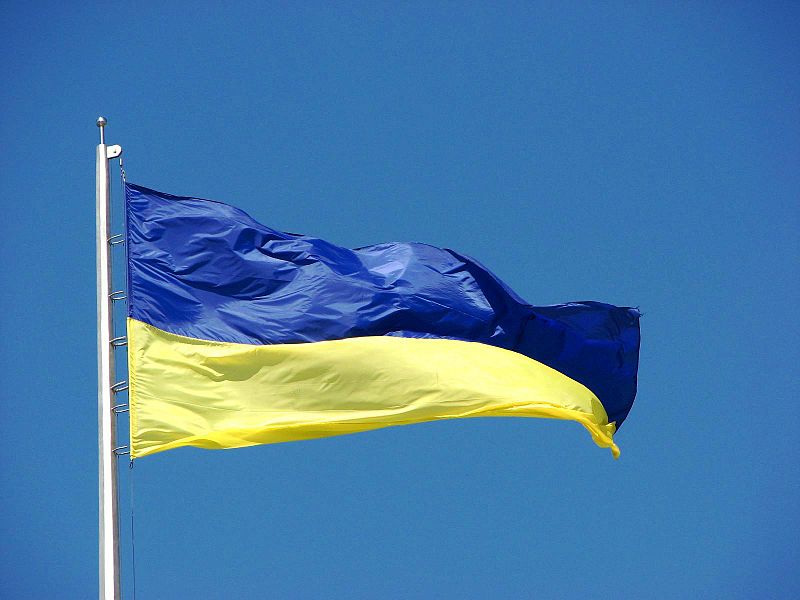UK News
-
 UK imposes emergency visa curbs on students and Afghan workers as asylum claims surge
Britain will block study visas for nationals of four countries and suspend work visas for Afghans in a sweeping move the government says is needed to stem a sharp rise in asylum claims madeRead More...
UK imposes emergency visa curbs on students and Afghan workers as asylum claims surge
Britain will block study visas for nationals of four countries and suspend work visas for Afghans in a sweeping move the government says is needed to stem a sharp rise in asylum claims madeRead More... -
 UK pumps £30m into satellite communications push to win bigger slice of £40bn global market
The UK government is stepping up its bid to become a major force in satellite communications, unveiling £30 million in fresh funding for British space firms targeting aRead More...
UK pumps £30m into satellite communications push to win bigger slice of £40bn global market
The UK government is stepping up its bid to become a major force in satellite communications, unveiling £30 million in fresh funding for British space firms targeting aRead More... -
 UK expands flights from Oman to evacuate vulnerable Britons as Gulf tensions rise
The UK government is working with commercial airlines to increase the number of flights leaving Oman, as it moves to prioritise the evacuation of vulnerable British nationals from the region.Read More...
UK expands flights from Oman to evacuate vulnerable Britons as Gulf tensions rise
The UK government is working with commercial airlines to increase the number of flights leaving Oman, as it moves to prioritise the evacuation of vulnerable British nationals from the region.Read More... -
 Royal Docks unveils UK’s first Circular Construction Hub, powering London’s path to Net Zero by 2030
London has taken a major step towards a greener future with the launch of the UK’s first Circular Construction Hub in the Royal Docks — a flagship project that aims toRead More...
Royal Docks unveils UK’s first Circular Construction Hub, powering London’s path to Net Zero by 2030
London has taken a major step towards a greener future with the launch of the UK’s first Circular Construction Hub in the Royal Docks — a flagship project that aims toRead More... -
 UK to introduce time-limited refugee status with reviews every 30 months
Refugee protection in the UK will move from a permanent model to a time-limited system, with all adult asylum seekers facing a formal review of their status every 30Read More...
UK to introduce time-limited refugee status with reviews every 30 months
Refugee protection in the UK will move from a permanent model to a time-limited system, with all adult asylum seekers facing a formal review of their status every 30Read More...

Culture
-
 UK music exports get £1.4m boost as 68 independent artists win global growth grants
Rising British music talent is set for a global push after 68 independent UK acts secured a combined £1.4 million in government-backed funding designed to grow international audiences, boostRead More...
UK music exports get £1.4m boost as 68 independent artists win global growth grants
Rising British music talent is set for a global push after 68 independent UK acts secured a combined £1.4 million in government-backed funding designed to grow international audiences, boostRead More... -
 Emery Walker revealed: new exhibition explores the man behind the arts and crafts legend
A new exhibition opening this spring at Emery Walker’s House sets out to restore depth, warmth, and personality to one of Britain’s most influential yetRead More...
Emery Walker revealed: new exhibition explores the man behind the arts and crafts legend
A new exhibition opening this spring at Emery Walker’s House sets out to restore depth, warmth, and personality to one of Britain’s most influential yetRead More... -
 London confirms St Patrick’s Day 2026 parade and Trafalgar Square festival
London will turn green once again next spring after the Mayor confirmed the capital’s St Patrick’s Day celebrations will take place on Sunday 15 March 2026, with aRead More...
London confirms St Patrick’s Day 2026 parade and Trafalgar Square festival
London will turn green once again next spring after the Mayor confirmed the capital’s St Patrick’s Day celebrations will take place on Sunday 15 March 2026, with aRead More... -
 Masterpieces beyond the Museum: National Gallery brings life-size art to communities ccross the UK
World-famous paintings from the National Gallery are stepping out of Trafalgar Square and into everyday life, as part of a major touring project that will seeRead More...
Masterpieces beyond the Museum: National Gallery brings life-size art to communities ccross the UK
World-famous paintings from the National Gallery are stepping out of Trafalgar Square and into everyday life, as part of a major touring project that will seeRead More... -
 Award-winning Polish writer Mariusz Szczygieł brings ‘Not There’ essay collection on UK tour
Polish writer Mariusz Szczygieł, one of Central Europe’s most acclaimed literary reporters, will tour the UK later this month with a series of public events marking the English-language release...Read More...
Award-winning Polish writer Mariusz Szczygieł brings ‘Not There’ essay collection on UK tour
Polish writer Mariusz Szczygieł, one of Central Europe’s most acclaimed literary reporters, will tour the UK later this month with a series of public events marking the English-language release...Read More... -
 Professor Dame Carol Black GBE reappointed as Chair of the British Library for 2026–2027
The UK Secretary of State has confirmed the extension of Professor Dame Carol Black GBE as Chair of the British Library, continuing her leadership from 1 September 2026 to 31 August 2027.Read More...
Professor Dame Carol Black GBE reappointed as Chair of the British Library for 2026–2027
The UK Secretary of State has confirmed the extension of Professor Dame Carol Black GBE as Chair of the British Library, continuing her leadership from 1 September 2026 to 31 August 2027.Read More... -
 Climate, community and care: Soma Surovi Jannat’s landmark exhibition at the Ashmolean Museum
From spring through autumn 2026, the Ashmolean Museum presents 'Soma Surovi Jannat: Climate Culture Care', a powerful new exhibition that places climateRead More...
Climate, community and care: Soma Surovi Jannat’s landmark exhibition at the Ashmolean Museum
From spring through autumn 2026, the Ashmolean Museum presents 'Soma Surovi Jannat: Climate Culture Care', a powerful new exhibition that places climateRead More... -
 Londoners on trial: 700 years of crime revealed in a free City archives exhibition
From medieval pickpockets to notorious Victorian figures, seven centuries of crime, punishment and public fascination are laid bare in a new exhibition atRead More...
Londoners on trial: 700 years of crime revealed in a free City archives exhibition
From medieval pickpockets to notorious Victorian figures, seven centuries of crime, punishment and public fascination are laid bare in a new exhibition atRead More... -
 Lost for centuries, Henry VIII’s golden love pendant finds a home at the British Museum
A golden heart pendant once symbolizing the doomed marriage of Henry VIII and Katherine of Aragon has finally been secured for permanent display at the BritishRead More...
Lost for centuries, Henry VIII’s golden love pendant finds a home at the British Museum
A golden heart pendant once symbolizing the doomed marriage of Henry VIII and Katherine of Aragon has finally been secured for permanent display at the BritishRead More... -
 British High Commission hosts Caledonian Ball in Lahore to celebrate growing Scotland–Pakistan partnership
The British High Commission brought a touch of Scotland to Lahore this week as it hosted the Caledonian Ball at the historic Sir Ganga Ram Residence, celebratingRead More...
British High Commission hosts Caledonian Ball in Lahore to celebrate growing Scotland–Pakistan partnership
The British High Commission brought a touch of Scotland to Lahore this week as it hosted the Caledonian Ball at the historic Sir Ganga Ram Residence, celebratingRead More... -
 300-year-old Rysbrack Marble putti blocked from export as UK scrambles to save national treasure
A three-century-old marble sculpture by renowned eighteenth-century sculptor Michael Rysbrack has been placed under a temporary UK export ban, giving BritishRead More...
300-year-old Rysbrack Marble putti blocked from export as UK scrambles to save national treasure
A three-century-old marble sculpture by renowned eighteenth-century sculptor Michael Rysbrack has been placed under a temporary UK export ban, giving BritishRead More... -
 Inside ICG PR: how an international PR agency shapes reputation for luxury, fashion, and cultural brands
Interview: the co-founder of Iris Consulting Group Iryna Kotlyarevska on building global visibility with cultural intelligenceRead More...
Inside ICG PR: how an international PR agency shapes reputation for luxury, fashion, and cultural brands
Interview: the co-founder of Iris Consulting Group Iryna Kotlyarevska on building global visibility with cultural intelligenceRead More...

British Queen celebrates
Most Read
- Teen held after US woman killed in London stabbings
- Heave-ho Harry! Prince prepares to join the walking wounded in ice trek to North Pole
- Football: Farhad Moshiri adamant Everton deal above board
- "Master of English Style". Interview with Designer Lydia Dart
- Letter to the Financial Times from Lord Mayor Alderman Michael Bear
World News

An agreement between Italy and the UK to allow the exchange of driving licences without the need to take a test has been signed today. Edward Llewellyn, the British Ambassador to Italy and

The onward travel scheme for Ukrainian refugees will be extended for 6 months.

The first ever net zero transatlantic flight will take off from the UK next year, with Virgin Atlantic receiving government funding to fly across the pond using solely sustainable aviation fuel (SAF).

Minister Freeman announces new global research fund to deepen collaboration between the UK and international R&D powers like Japan.

The UK and US will work together to increase energy security and drive down prices, as part of a new energy partnership.

During the UK Trade Envoy's week-long programme in Australia, he will focus on opportunities from Free Trade agreement, green industrial revolution and defence collaboration.

The UK, in partnership with the G7 countries, Australia and the European Union, have today agreed to set the price cap on Russian crude oil traded by firms shipping oil to third countries at

The UK and Ukraine agree a new Digital Trade Agreement (DTA) to provide much-needed support for the Ukrainian economy following Russia’s illegal invasion.

Kyiv Investment Forum took place on November 28 in the capital of Belgium. Kyiv Mayor of Kyiv Vitaliy Klychko, his brother Volodymyr Klychko, Brussels Mayor Philippe Close, European

Minister Anne-Marie Trevelyan will make her first visit in her new role to continue close UK-Australia cooperation and promote regional security and prosperity.




















